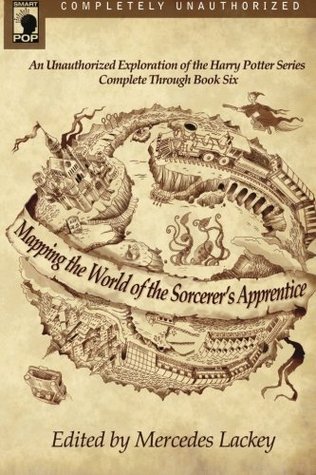What do you think?
Rate this book


195 pages, Paperback
First published December 11, 2005

Alcuni esempi:
"The Dursleys as Social Commentary": i perfidi zii di Harry sono i personaggi meno realistici e più caricaturali dell’intera saga: eppure, sono usati dall’autrice come fulcro della sua satira contro il pregiudizio e l’intolleranza, che è il tema centrale dei sei romanzi.
"To Sir, With Love": il fenomeno della fan fiction, cioè i racconti originali scritti dai fan, con protagonisti i personaggi della Rowling. Testimonianza di amore per il lavoro di un altro autore, talvolta però la fan fiction stravolge la psicologia dei personaggi. Perché l’odioso professor Snape [Piton] nelle mani dei fan è diventato una specie di sex symbol?
"Why Dumbledore Had to Die": i libri della Rowling devono molto alla tradizione mitologica nordica, la stessa da cui partono i libri di Tolkien. In questo saggio, Harry Potter è messo a confronto con altri miti della modernità, da Superman a Guerre stellari, alla luce delle celebri teorie di Joseph Campbell sulla natura universale del mito.
"From Azkaban to Abu Ghraib": la più famosa prigione magica e il famigerato carcere babbano: Harry Potter è un’amara e sfaccettata parodia che riflette sul mondo reale e sulle grandi questioni del nostro tempo. Terrorismo, corruzione e razzismo sono all’ordine del giorno anche tra i maghi.
Il libro è rivolto a chi ha già letto l’intera saga, ed è prevalentemente orientato a un pubblico di lettori adulti (diciamo dai sedici anni in su). Il livello di approfondimento è tale da qualificare questo libro come una raccolta di saggi di critica letteraria, e non solo una “guida agli incantesimi e ai personaggi”, filone ormai ampiamente sfruttato. I testi qui raccolti, piuttosto, offrono spunti di riflessione non solo ai più sfegatati tra i fan, ma anche al lettore curioso che desidera approfondire alcuni aspetti della saga.
Essendo uscito nel 2005, il libro analizza solo i primi sei romanzi della serie.